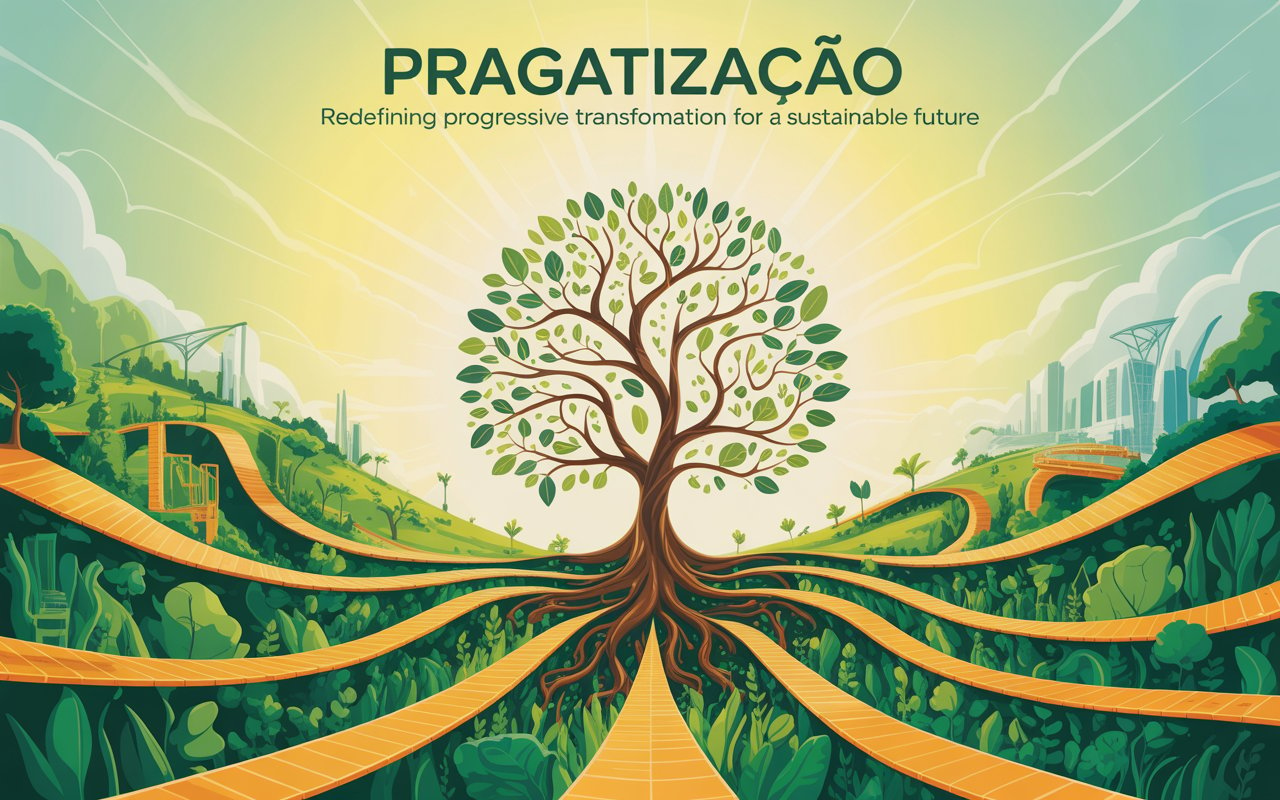In a century defined by disruption, pragatizacao emerges as both a philosophy and a framework for turning visionary ideas into measurable, scalable realities. Rooted in the Indic word “pragati” (progress) and the notion of actualization, pragatizacao bridges the gap between aspiration and execution. It is not just about dreaming big—it is about building systems, policies, and innovations that transform lives without losing cultural or contextual relevance.
What Is Pragatizacao?
At its core, pragatizacao is a structured journey of transformation that:
- Aligns big-picture vision with actionable steps.
- Blends innovation with sensitivity to local contexts.
- Encourages iterative implementation through rapid feedback loops.
- Scales solutions beyond pilot projects into long-lasting impact.
In simple terms, pragatizacao is the art of converting progressive change into lived experience—from classrooms to healthcare clinics, from boardrooms to village councils.
Why Pragatizacao Matters More Than Ever
We live in an era where old systems fail to keep up with emerging realities:
- Climate resilience demands locally designed, scalable responses.
- Healthcare gaps in underserved communities require technology-driven yet community-owned solutions.
- Digital literacy and inclusion must go beyond pilots and reach millions sustainably.
- Innovation fatigue is real—too many “pilots” stall without achieving scale.
Pragatizacao addresses these challenges by offering a holistic framework where governments, entrepreneurs, and civil society co-create solutions that endure.
The Pragatizacao Framework: Six Phases of Real Transformation
Unlike fragmented innovation approaches, pragatizacao is comprehensive and cyclical. It integrates vision, action, and scale through six phases:
1. Vision Alignment
- Define aspirational and operational goals clearly.
- Secure multi-stakeholder consensus from policymakers, communities, and investors.
2. Context Mapping
- Study enablers, barriers, and socio-cultural dynamics.
- Build empathy via on-ground immersion and lived experiences.
3. Solution Design & Prototyping
- Launch Minimum Viable Interventions (MVIs) to test feasibility.
- Set transparent KPIs: cost-effectiveness, user impact, adoption rate.
4. Iterative Implementation
- Use rapid feedback loops for course correction.
- Adapt swiftly based on real-world data.
5. Scale & Institutionalization
- Build long-term ownership across public, private, and social sectors.
- Institutionalize solutions into policies, curricula, or business models.
6. Impact Assurance
- Deploy independent evaluations for credibility.
- Share open data to promote transparency and trust.
Pragatizacao in Action: Real-World Applications
- Digital Education in Rural Regions
Solar-powered learning hubs, co-designed with local teachers, empower thousands of students with digital skills, bridging urban-rural education gaps. - Last-Mile Healthcare
Connected health kits and trained community paramedics reduce maternal mortality in remote areas, later integrated into district health policies. - Agri-Logistics Optimization
Farmer cooperatives powered by AI demand forecasting reduce waste, cut out exploitative middlemen, and triple incomes sustainably.
These examples highlight that pragatizacao is not theory—it is a living, adaptive model for systemic change.
Comparative Lens: Why Pragatizacao Wins
| Aspect | Traditional Development | Innovation Labs | Pragatizacao |
|---|---|---|---|
| Horizon | Long-term, slow | Short-term pilots | Balanced, scalable |
| Execution | Top-down | Prototype-heavy | End-to-end, inclusive |
| Stakeholders | Bureaucratic | Limited to elites | Multi-sectoral, grassroots to policy |
| Adaptability | Rigid | Agile but shallow | Agile at all stages |
| Sustainability | Donor-dependent | Fragile post-funding | Designed for endurance |
Tangible Benefits of Pragatizacao
- Accelerated Outcomes: Measurable progress in health, education, livelihoods.
- Cross-Sector Trust: Stronger bonds between government, business, and civil society.
- Reduced Risk: Failures are learning tools, not roadblocks.
- Policy Synergy: Vision translates into action without decades-long delays.
Addressing Common Concerns
Is pragatizacao just another buzzword?
No. It offers a complete lifecycle—from vision to scale—with real accountability mechanisms.
Can the private sector adopt pragatizacao?
Yes. Corporates applying it to CSR and ESG projects build community-owned, scalable enterprises.
What about limited resources?
Pragatizacao thrives on modular pilots, co-funding, and phased scaling—ensuring efficiency without massive upfront costs.
How to Embark on Pragatizacao
For organizations and individuals:
- Start with intentional clarity of vision.
- Conduct immersive field research.
- Launch small, testable prototypes.
- Share transparent mid-stage reports.
- Engage with ecosystems early (NGOs, investors, academia).
- Build accountability systems from day one.
Future Horizons of Pragatizacao
- Climate Adaptation Hubs in vulnerable regions.
- Urban-Rural Market Bridges empowering artisans.
- Inclusive Fintech Models for gig workers and women entrepreneurs.
- Tele-Mental Health Networks embedded in primary healthcare.
Pragatizacao will continue shaping future-ready societies, where progress is inclusive, measurable, and scalable.
Conclusion: Pragatizacao as a Global Movement
Pragatizacao is more than a framework—it is a movement that redefines how humanity approaches progress. By balancing vision with execution, tradition with innovation, and pilots with scalability, it creates a blueprint for equitable and enduring change. In a world of constant disruption, pragatizacao is the anchor that makes transformation sustainable.
FAQs on Pragatizacao
Q1. What is the main goal of pragatizacao?
To make progressive change actionable, scalable, and context-sensitive.
Q2. Who can apply pragatizacao?
Governments, businesses, NGOs, and individuals seeking sustainable transformation.
Q3. How is it different from innovation labs?
Unlike pilot-focused labs, pragatizacao ensures scaling, institutionalization, and long-term impact.
Q4. What industries can benefit most?
Education, healthcare, agriculture, governance, fintech, and cultural preservation.
Q5. Is pragatizacao relevant globally?
Yes. While rooted in local sensitivity, its framework is adaptable worldwide.
